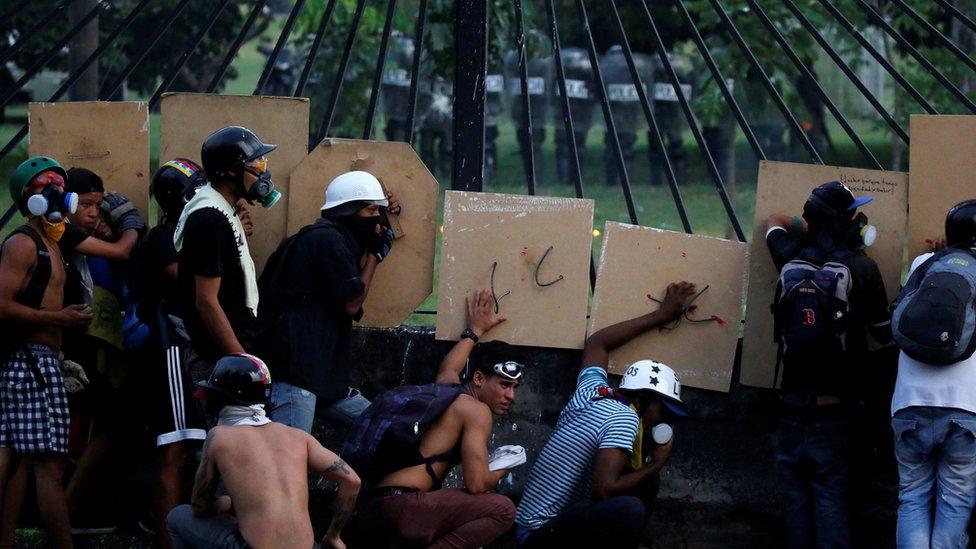Venezuela: Teenager killed as mass protests rage
- Published
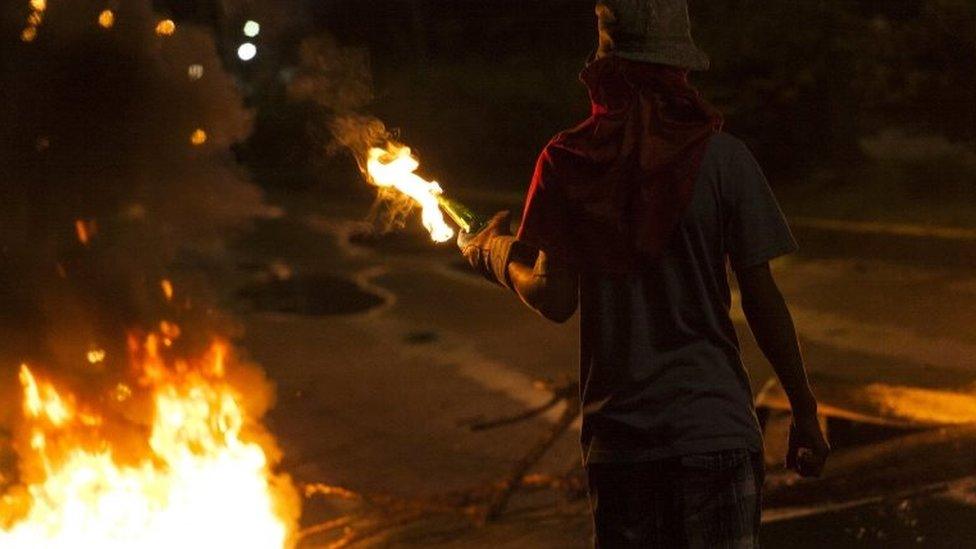
Opposition activists have been protesting almost daily for seven weeks
Two Venezuelans, including one teenager, were killed on Monday during another day of mass protests against President Nicolas Maduro.
Luis Alviarez, 17, was hit in the chest during clashes with police in the western state of Tachira.
At a separate protest in the state, Diego Hérnandez, 33, was also killed.
Near-daily demonstrations began seven weeks ago, demanding early elections and an end to the country's deep economic crisis.
President Maduro has accused the leader of the opposition-led National Assembly, Julio Borges, of inciting violence by calling people on to the streets.
About 40 people have been killed since the unrest began.
Protesters began taking to the streets from 07:00 (03:00 GMT) on Monday morning to set up road blocks to "paralyse the country".
Offices of the state-run power company, Corpoelec, were also set alight in the northern Carabobo state on Monday, with the government blaming the opposition.
Three policemen were injured during protests in the state, authorities said, with one mistakenly reported dead by the local governor.
Meanwhile, video emerged online of Hérnandez, lying in the street with blood pouring from his chest, apparently having been shot in the town of Capacho Nuevo.
Ombudsman Tarek Saab said he had contacted various authorities to instigate an "exhaustive investigation" into Monday's deaths.
Last month, Saab's son, Yibram Saab, posted a video on YouTube, calling for his father to do more to stop the violence.
"That could've been me!", he said in relation to a previous death of a young protester, Juan Pablo Pernalete.
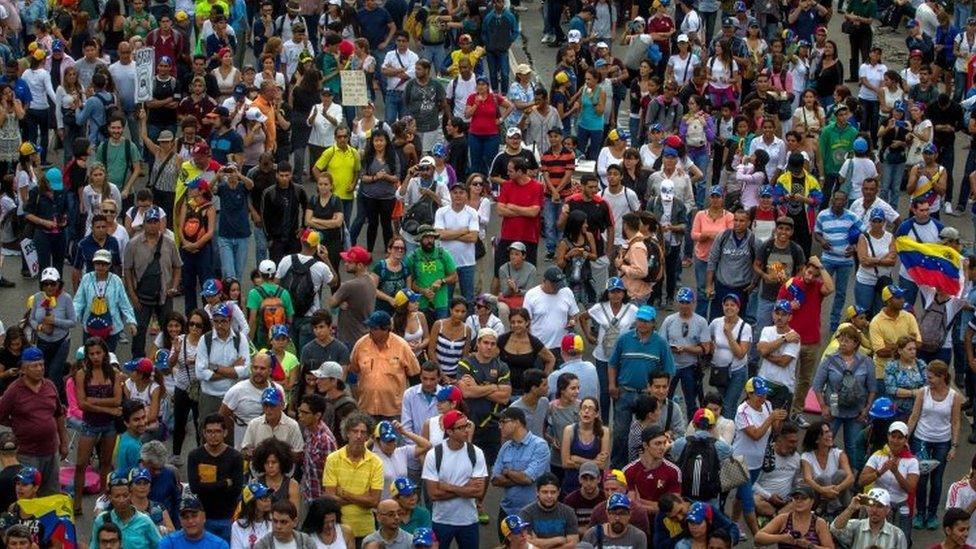
Thousands rallied on Monday in the capital Caracas and other cities
The recent unrest began when the Supreme Court attempt to take over powers from the assembly on 29 March.
It reversed its decision a few days later but by then the opposition had seized the momentum.
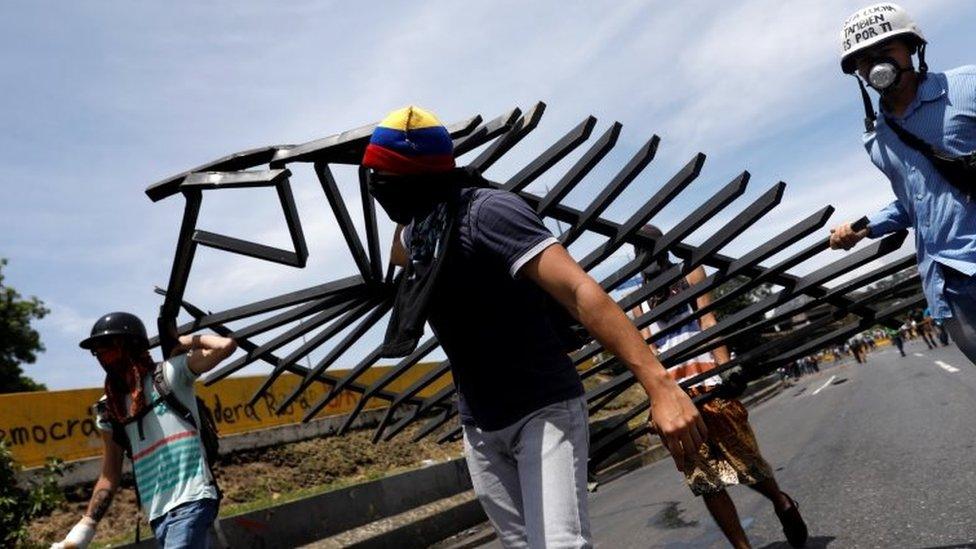
Some activists have been building barricades and staging sit-in protests
Despite having the world's largest known oil reserves, Venezuela is facing a shortage of many basic items, including food and medicines.
Its economy has collapsed, with inflation expected to top 700% this year, and crime is rampant.
The opposition says the socialist governments of Mr Maduro and his predecessor, the late Hugo Chavez, have mismanaged the economy since coming to power in 1999.
It is calling for early elections and the release of opposition politicians jailed over the past few years.
Mr Maduro accuses the country's business elite of boycotting the economy to create unrest and topple his democratically elected government. His term ends in January 2019.
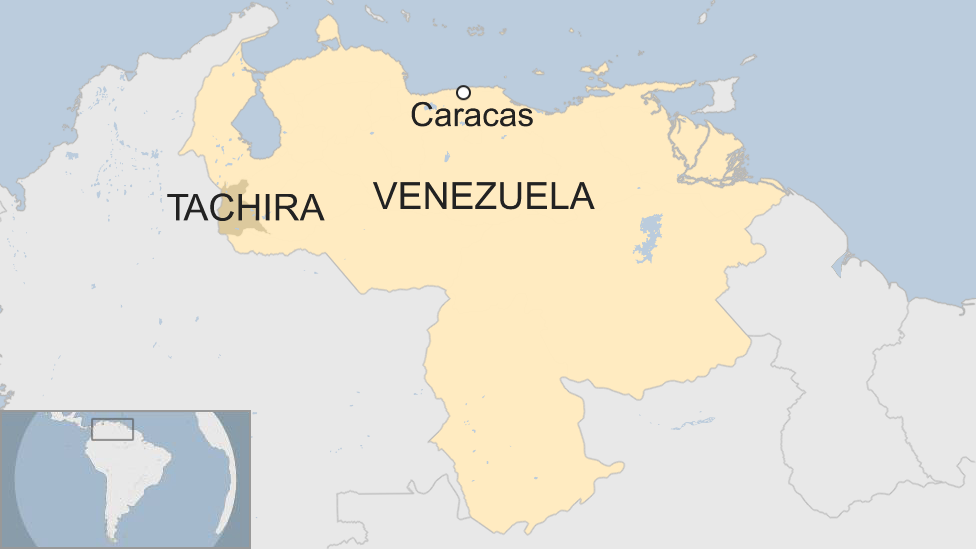
- Published14 May 2017

- Published13 May 2017
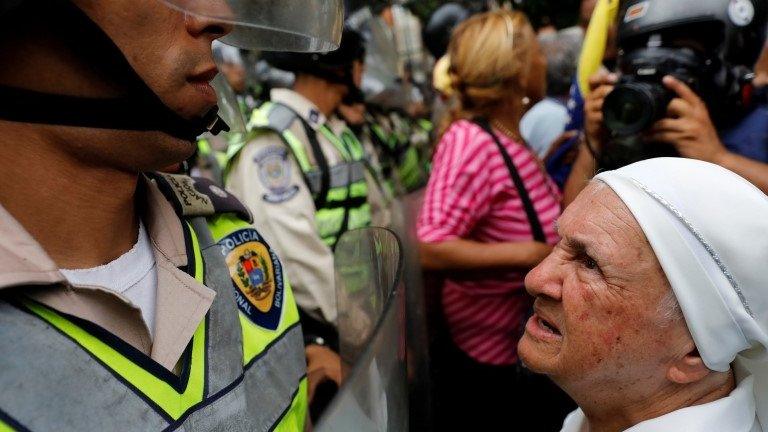
- Published12 May 2017
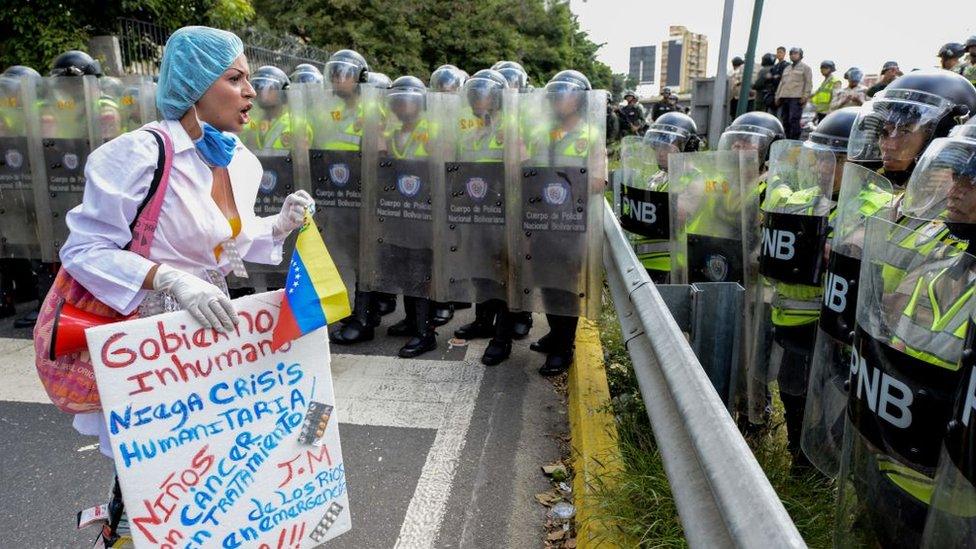
- Published12 May 2017
- Published9 May 2017
